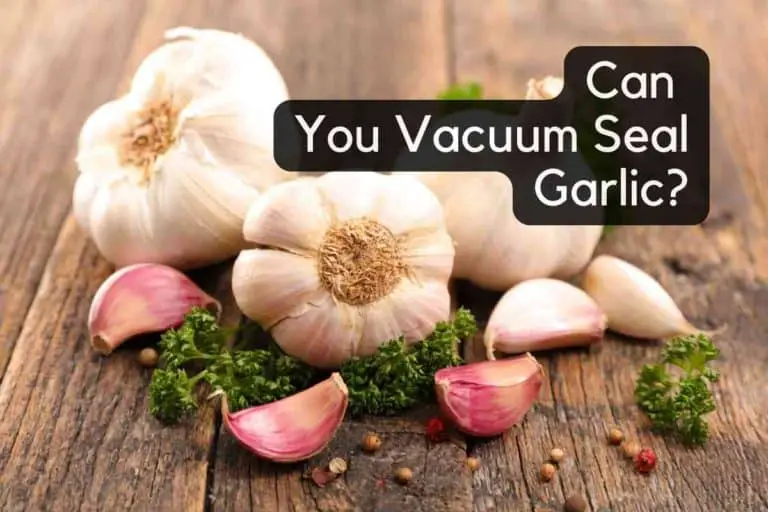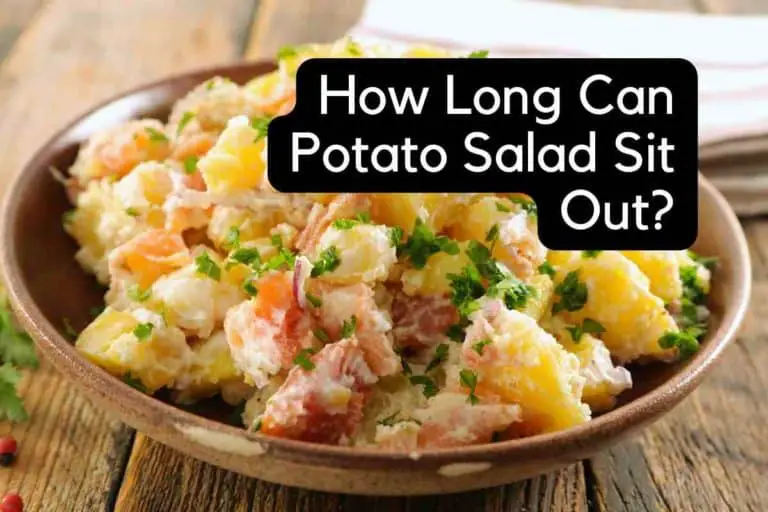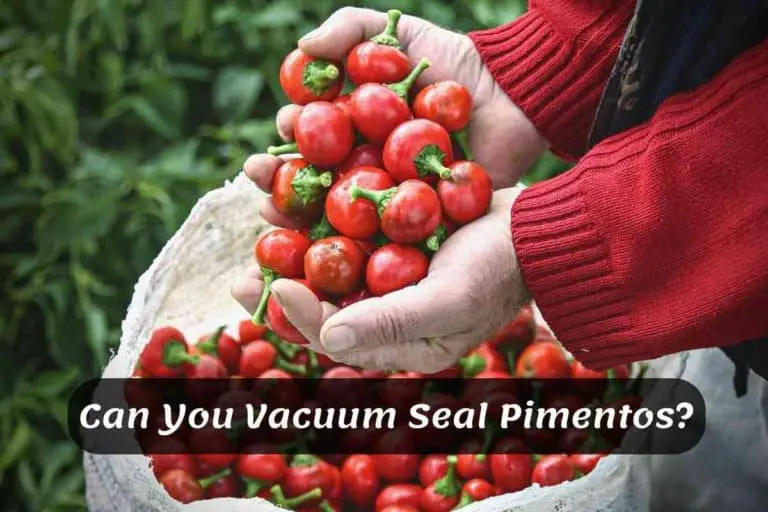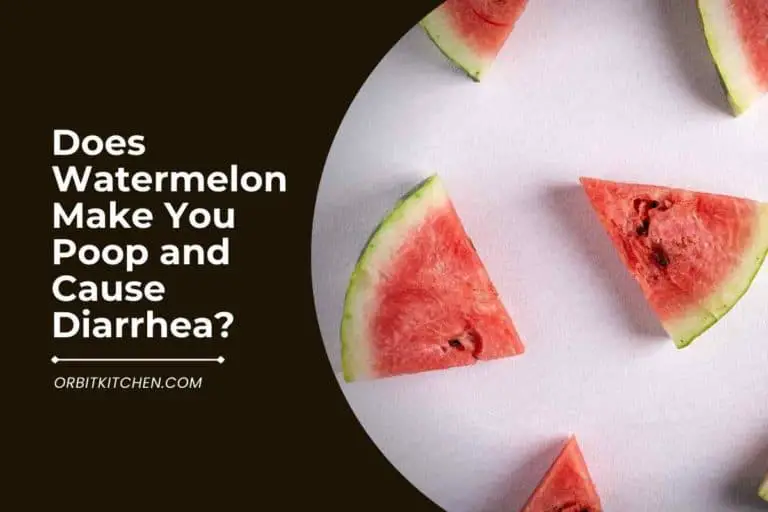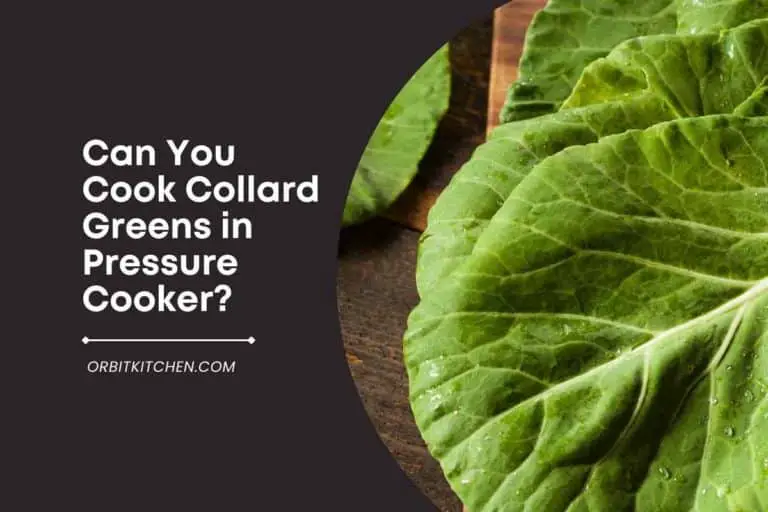Can You Vacuum Seal Broccoli? [A Detailed Answer]
Broccoli is an excellent source of vitamins A, C, and K. It also contains fiber, folate, and potassium. There are a few things you can do to help increase the lifespan of broccoli; however, vacuum sealing is one of the best methods.
Can you vacuum seal Broccoli?
Yes, you can vacuum seal broccoli. It helps them preserve their freshness and flavor for extended periods. Vacuum sealing broccoli can prevent them from getting the freezer burned and drying out. Also, the vacuum sealing keeps broccoli from absorbing the flavors of other foods.
In this guide, we’ll cover everything you need to know about vacuum sealing the broccoli, how long they last, and some tips, so keep reading.
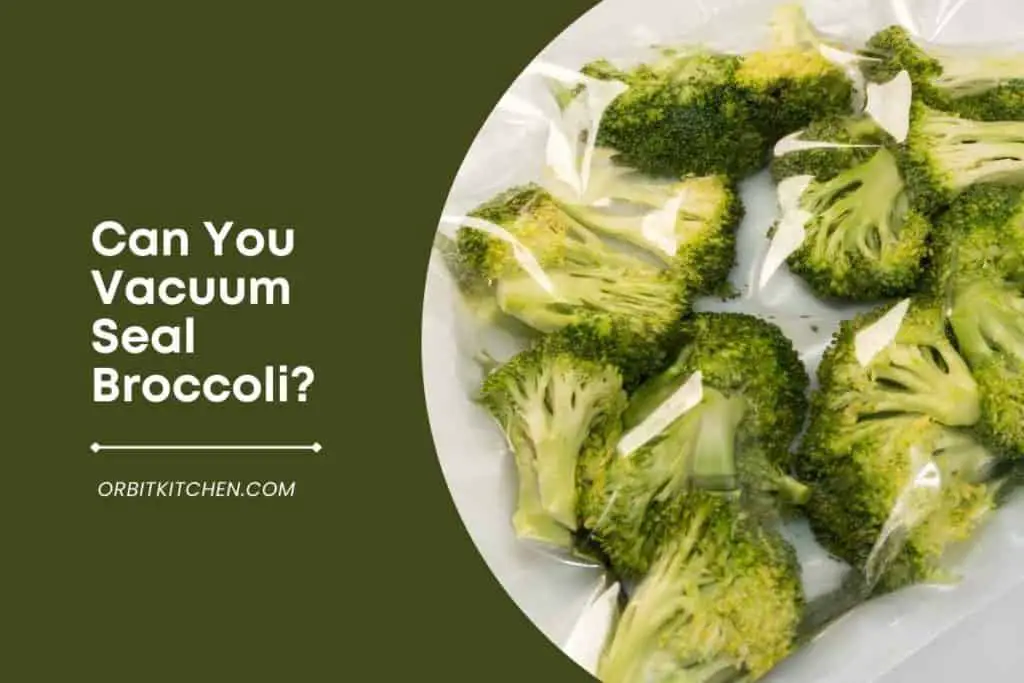
How Long Will Vacuum Sealed Broccoli Last?
Vacuum-sealed broccoli will last up to 2 weeks in the fridge and four months in the freezer. However, like any food item, if you think your broccoli might be past its prime, it’s best to eat them as soon as possible.
Vacuum-sealed broccoli will last for a long time if stored properly. If you are unsure how long your broccoli will last, it is best to check with a professional. With proper storage, your broccoli can last for more than two months.
How Do You Properly Vacuum Seal Broccoli?
Broccoli is delicious, nutritious, and environmentally sustainable food. But before you can enjoy Broccoli, you must adequately vacuum-seal broccoli to preserve its quality and nutrition.
Here are five simple steps to follow to vacuum seal broccoli:
- Start with clean broccoli. Remove the stems and wipe the broccoli clean with a damp cloth. If needed, remove any dirt or debris with a brush.
- Place it on a cutting board or flat surfaces in a single layer.
- Using a sharp knife, chop the broccoli into small pieces.
- Place broccoli in a vacuum sealer bag.
- Seal the bag according to the manufacturer’s instructions.
What Happens If You Don’t Vacuum Seal Broccoli Correctly?
If you don’t vacuum seal broccoli correctly, it may not stay fresh for long. Also, if you don’t vacuum seal broccoli correctly, it will spoil and become inedible.
Broccoli is a delicate food that you must adequately seal to stay fresh. If you don’t vacuum-seal, it will start to rot and become a breeding ground for bacteria.
Broccoli is a healthy vegetable that can be eaten raw, cooked, or even as a snack. It’s also easy to store in the freezer. However, if you don’t vacuum seal it properly, it will lose its nutrients, and its texture will change.
Can You Vacuum Seal Cooked Broccoli?
Yes, you can vacuum seal cooked broccoli. The trick is to ensure all the moisture has been removed from the broccoli before you seal it. This means you must cook your broccoli first, then let it cool down before sealing it.
Also, you can vacuum seal cooked broccoli in either a freezer or a vacuum sealer bag. If you are using a freezer bag, place the broccoli in an empty bowl first, and then pour some water into the bowl until it covers the broccoli. Place a dish towel over the bowl and refrigerate for at least 6 hours or overnight.
After this time has passed, remove the dish towel and drain off any excess water from around your cooked broccoli before sealing it up in an airtight container or bag using your vacuum sealer machine.
Benefits of Vacuum Sealing Broccoli
There are many benefits of vacuum-sealing broccoli. The main advantage is that they last longer and are more nutritious than when they are not vacuum sealed.
Here is the list of five benefits of vacuum sealing broccoli:
- Vacuum sealing broccoli help preserve its freshness and prevent them from drying out.
- This storage method also helps to keep the broccoli’ flavor and aroma intact.
- Vacuum-sealed broccoli will last longer than those stored in other methods, such as plastic bags.
- Additionally, vacuum sealing can help preserve beneficial compounds and nutrients in the broccoli.
- Broccoli vacuum-sealed in its juices is less likely to be bruised or damaged.
- Finally, vacuum sealing broccoli is a space-saving storage method, as it reduces the amount of air surrounding the broccoli.
Is it Safe to Vacuum Seal Broccoli?
Yes, it is safe to vacuum seal broccoli. This will help to keep them fresh and prevent them from drying out. Vacuum sealing is a popular method for storing broccoli, as it helps keep them fresh for longer.
However, there is some debate about whether it is safe to eat vacuum-sealed broccoli. Some experts believe the lack of oxygen in the sealed environment can cause the broccoli to spoil more quickly.
In contrast, others argue that the closed environment helps keep the Broccoli fresher for longer. Ultimately, it is up to the individual to decide whether or not they feel comfortable eating vacuum-sealed broccoli.
Can You Vacuum Sealed Broccoli Stinks?
Yes, you can vacuum seal broccoli stinks, which will help keep the odor contained. However, the stink will eventually permeate the vacuum seal and escape over time. If you want to keep the stink contained for a long time, it is best to keep the broccoli in a tightly sealed container in the fridge.
Can I Vacuum Seal Broccoli Without Blanching?
Yes, you can vacuum seal broccoli without blanching. If you’re using an Instant Pot, you can use it for cooking the broccoli in water on the pressure setting for two minutes.
Then transfer the cooked broccoli to a bowl of ice water for about 30 seconds to cool it down. Then drain the water, pat dry with paper towels, and put in an airtight container or resealable plastic bag for storage.
If you don’t have an Instant Pot, cook your broccoli in boiling water for two minutes, then transfer it to ice water as above.
Care Tips When Vacuum Sealing Broccoli
- It is essential to wash it well before preparing it for vacuum sealing. Remove any excess water and pesticides, then chop them into small pieces. To make it more tender, steam or boil the Broccoli before vacuum sealing.
- If you freeze the broccoli, blanch them first in boiling water for a few minutes, and the balanced flavor and texture will remain intact.
- When packing the broccoli into the vacuum seal bags, leave some space at the top so you can suck the air out properly.
- Be sure to label the vacuum-sealed broccoli with the date you sealed them. This will help you track how long they will last in the freezer.
- When reheating vacuum-sealed broccoli, add a little water to the bag so they don’t dry out.
- A good vacuum sealer will help to keep the broccoli fresh and intact. Make sure to get one that is compatible with your food type.
Conclusion
Ultimately, we hope you are now well aware of vacuum-sealing broccoli for a more extended period. Broccoli is an excellent choice for a healthy diet. It’s packed with vitamins and minerals, and it’s also low in calories. However, when you don’t vacuum seal it properly, it can lose some of its nutritional value and become soggy.

